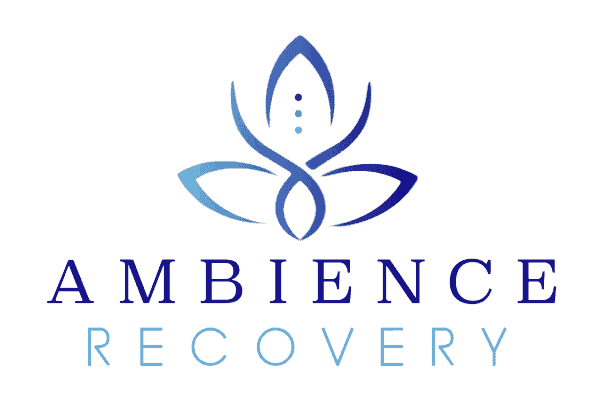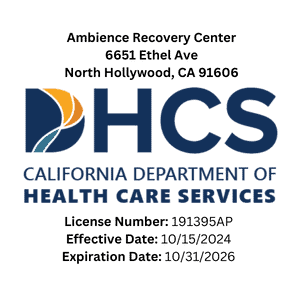Key Takeaways
- Addiction impacts physical, emotional, and behavioral health, disrupting daily life and relationships.
- Warning signs include withdrawal symptoms, cravings, and changes in mood or behavior.
- Recognizing addiction early can lead to better treatment outcomes and recovery success.
Introduction to Warning Signs and Symptoms of Addiction
Addiction is a chronic condition that affects millions of people. It doesn’t just harm those who use substances—it affects families, workplaces, and entire communities. Addiction begins subtly, often starting with the occasional use of drugs or alcohol. Over time, it becomes more serious, affecting people’s ability to control their actions.
Recognizing the warning signs of addiction is a critical step toward getting help. By identifying these signs early, individuals and their loved ones can seek treatment and take the first step toward recovery.
What is Addiction?
Addiction is a chronic disease that changes the brain and behavior. It’s characterized by an uncontrollable urge to use a substance despite harmful consequences.
Addiction often begins with casual or recreational use of drugs or alcohol. Over time, the brain’s reward system becomes dependent on these substances, making stopping harder. The more a person uses, the more their brain craves the substance, creating a dangerous cycle.
Early Warning Signs of Drug Addiction
Addiction doesn’t happen overnight. It starts with small changes that can be easy to overlook.
Increased Tolerance to Drug Abuse
One of the earliest signs is needing more substance to feel the same effect. For example, someone who once needed one drink to relax may need three or four.
Frequent Cravings for Drug Use
Another early sign is thinking about the substance often. People may be strongly urged to use it, even when unavailable.
Loss of Control
When someone tries to cut back or stop using but can’t, it’s a clear warning sign. They may say they’ll stop but find themselves using it again within days or even hours.
Physical Warning Signs
Addiction often has visible effects on the body.
Changes in Appearance
People struggling with addiction may lose or gain weight quickly. They might neglect personal hygiene, appearing unkempt or unhealthy.
Health Problems
Unexplained injuries, frequent illnesses, or symptoms like nausea and shaking could indicate withdrawal. These are physical signs that the body has become dependent on a substance.
Behavioral Warning Signs
Behavioral changes are often among the first signs noticed by loved ones.
Neglecting Responsibilities Such As Work or School
Someone with addiction may miss work, fail to keep up with school or neglect their family responsibilities.
Risky Behaviors
They might engage in dangerous activities, such as driving under the influence or taking unprescribed medications.
Secrecy
Hiding their substance use or lying about their activities can signal a deeper problem.
Emotional Warning Signs
Addiction also affects mental health.
Mood Swings
People with addiction may have sudden mood changes, becoming irritable or angry without reason.
Anxiety or Depression
They may struggle with feelings of sadness, hopelessness, or constant worry.
Withdrawal from Loved Ones
Isolation is a common sign. They may avoid spending time with family and friends, especially if their substance use is questioned.
Common Substances and Their Signs of Addiction
The signs of addiction can vary depending on the substance.
Alcohol
- Slurred speech or frequent hangovers.
- Drinking alone or hiding bottles.
Opioids (Heroin, Fentanyl, Prescription Painkillers)
- Drowsiness and pinpoint pupils.
- Unexplained itching or frequent doctor visits for prescriptions.
Stimulants (Cocaine, Methamphetamine)
- Rapid speech and hyperactivity.
- Paranoia or sudden bursts of energy.
Prescription Drugs (Xanax, Klonopin)
- Over-sedation and constant drowsiness.
- Running out of prescriptions early.
Health and Social Consequences of Addiction
Left untreated, addiction can lead to severe consequences.
Health Risks
Addiction can cause permanent damage to the liver, heart, and brain. It increases the risk of overdose, which can be fatal.
Relationship Struggles
Addiction often strains relationships with family, friends, and coworkers. Trust is frequently broken, leading to isolation and loneliness.
Financial and Legal Problems
Substance abuse can lead to financial difficulties, job loss, and legal issues such as DUIs or arrests for possession.
How to Seek Help for Addiction
Recognizing the signs of addiction is the first step. Seeking professional help is the next.
Professional Treatment
Addiction treatment programs provide comprehensive care. These programs may include medical detox, therapy, and medication-assisted treatment to help manage cravings.
Therapy and Support Groups
Therapies like Cognitive-Behavioral Therapy (CBT) and groups like Alcoholics Anonymous (AA) offer support and tools for recovery.
Importance of Early Intervention
The sooner someone seeks help, the better their chances of recovery. Addiction treatment works, but it’s most effective when started early.
Conclusion to Warning Signs & Symptoms of Substance Use Disorder
Addiction is a challenging condition, but it’s not one you have to face alone. Recognizing the warning signs—physical, behavioral, or emotional—can make all the difference.
If you or someone you love is showing signs of addiction, don’t wait to seek help. Call Ambience Recovery at 866-721-7470 today to start the journey to recovery and reclaim your life.
FAQs About Warning Signs of Alcohol & Drug Addiction
What Are the Common Early Signs of Alcohol and Drug Addiction?
Common signs include physical changes, emotional withdrawal, and neglecting responsibilities.
How Does Drug or Alcohol Addiction Affect the Brain?
Addiction rewires the brain’s reward system, making it harder to stop using substances despite the adverse effects.
Can Substance Abuse Addiction Be Treated Successfully?
Yes, many people achieve long-term recovery with evidence-based treatment programs and ongoing support.
What Happens If Drug Abuse and Addiction Goes Untreated?
Untreated addiction can lead to severe health problems, relationship breakdowns, and even fatal overdoses.
How Can I Help a Loved One Showing Signs of Addiction?
Encourage open communication, offer support, and seek guidance from addiction treatment professionals.
What Are The Most Common Modalities For Addiction Treatment?
The most common modalities for addiction treatment include behavioral therapies like Cognitive Behavioral Therapy (CBT) and Dialectical Behavior Therapy (DBT), medication-assisted treatment (e.g., methadone, buprenorphine), and support groups like 12-Step programs. These approaches address both the physical and psychological aspects of addiction, often customized to an individual’s specific needs.
How Does Alcohol Abuse Develop?
Alcohol abuse develops gradually as individuals consume alcohol to cope with stress, emotions, or social pressure, leading to increased tolerance and dependency. Over time, drinking becomes compulsive and prioritized over responsibilities, relationships, and health, evolving into an alcohol use disorder.
Can Trauma Lead to Alcoholism?
Yes, trauma can lead to alcoholism, as individuals may use alcohol to numb emotional pain or escape distressing memories. Without proper coping mechanisms or therapy, this reliance can spiral into dependency, particularly if trauma remains unaddressed.
Resources
https://oasas.ny.gov/warning-signs
https://www.psychologytoday.com/us/basics/addiction/signs-and-symptoms-addiction
Katie is a Licensed Clinical Social Worker who has worked as a primary therapist, supervisor, and now clinical director for SUD/MH treatment centers for the past 12 years. Katie is trained in Brainspotting, EMDR, Internal Family Systems and Dialectical Behavior Therapy and is passionate about treating substance use disorders, trauma and grief.






